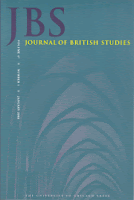Following
expressions of interest from a number of postgraduates seeking a further
opportunity to submit abstracts for the symposium, the call for papers deadline
has been extended to 13 August 2012.
Abstracts of 250 words for twenty-minute papers should be emailed to movingtowardsscience@gmail.com.
The day will be free to attend and we are delighted to be able to offer a
number of travel bursaries. Please indicate in your email if you would like to
be considered for a bursary.
‘Moving Towards Science in the Long
Nineteenth Century’:
A Postgraduate Symposium
12 September 2012, The
Literary and Philosophical Society, Newcastle upon Tyne
Guest speakers:
Professor Jennifer
Richards and Dr Anne Whitehead (Newcastle University), Professor David Knight
(Durham University), and Dr Peter Garratt (Northumbria University)
The North East
Postgraduate Research Group for the Long Nineteenth Century (NENC) invites
proposals for a one-day postgraduate symposium held on Wednesday 12 September
2012.
The theme of the symposium
reflects two parallel ‘moves’ towards science. First, it references the rise of
the ‘natural sciences’, the scientific method, and the professional scientist
across the long nineteenth century. Second, it recognises moves in contemporary
arts and humanities scholarship towards a more nuanced disciplinary
relationship with the sciences and the possibility of ‘one culture’.
Adopting an exploratory methodology, the day will allow postgraduate delegates
to think widely about how literary culture of the period approached, adapted,
and rejected emergent scientific, technological, and medical discourses and
methods. More broadly, we will consider how and why literature and science
might move together in the contemporary academy.
Ranging across the
early modern period to the end of the long nineteenth century in their areas of
specialisation, our guest speakers will consider in particular how they have
approached or made use of scientific discourses in their own research. This
will provide delegates with an opportunity to gain insight into some of the
methodological and theoretical benefits and challenges of a turn towards
science. Accordingly, we invite proposals from postgraduates for papers which
broadly consider ‘moves’ towards science in the literature of the long
nineteenth century, or in contemporary approaches to nineteenth-century
literature.
Possible topics could
include, but are not limited to:
- Defining science then
and now: shifting linguistic terms
- Science in the public
arena: the role of institutions in shaping relations between literature and
science
- The popularisation of
science through literary forms: prose, poetry, periodical, and pamphlet
- Reading in new ways:
approaching the scientific text across disciplinary lines
- Specialisation and the
figure of the professional scientist
- Evolution: approaches,
responses, reactions
- Developing narratives:
the Enlightenment, discovery, invention
- Science in literary
forms and the literary form of science
- Medicine and the
burgeoning medical industry
- Science at the margins:
gender, class, race, and geography
- The collaboration of
scientific and literary circles
- Science and anxiety:
resistance to scientific ideas in literature
- The rise of psychology
and theories of the mind
- Pseudoscience and
quackery: authenticity, belief, demonstration, and revelation
Abstracts of 250 words
for 20-minute papers should be submitted by 13 August 2012 to movingtowardsscience@gmail.com.
The symposium is being
generously supported by the British Society for Literature and Science (BSLS)
and by the three host Universities (Newcastle, Durham, and Northumbria). The
day will therefore be free to attend, and we are delighted to be able to offer
a number of postgraduate travel bursaries.
Please
indicate in your abstract if you would like to be considered for a bursary.
















